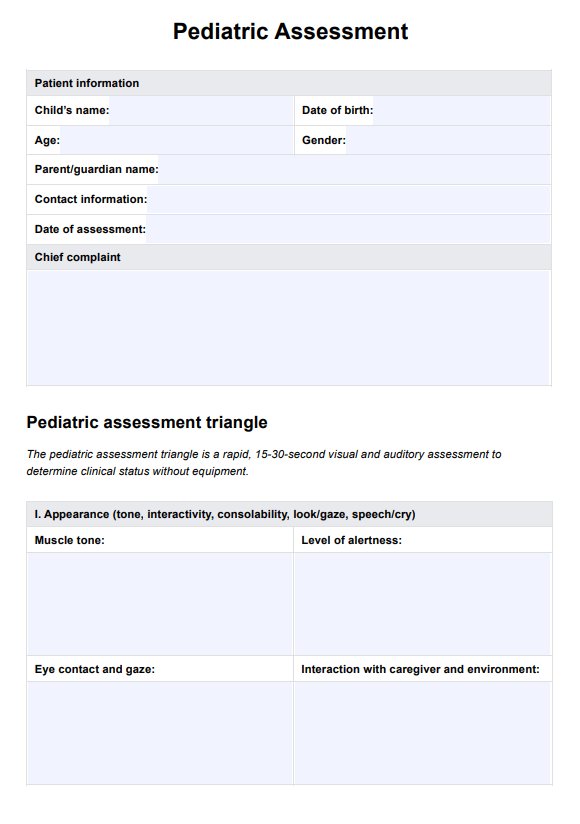A Pediatric Assessment includes a review of the child’s birth history, medical history, physical examination, developmental evaluation, and behavioral assessment. It focuses on identifying growth patterns, developmental milestones, and potential health concerns for timely early intervention.

Pediatric Assessment
Download and use Carepatron's free Pediatric Assessment PDF to support healthcare professionals in evaluating pediatric patients effectively.
Pediatric Assessment Template
Commonly asked questions
The pediatric assessment triangle consists of three elements: appearance, work of breathing, and circulation to the skin. These components provide a rapid evaluation of a child’s overall clinical status without requiring equipment.
Key components of a Pediatric Assessment include the chief complaint, vital signs, physical examination, developmental milestones, and a review of family history and medical history. It also assesses behavioral patterns, functional abilities, and the need for further investigation if abnormalities are detected.
EHR and practice management software
Get started for free
*No credit card required
Free
$0/usd
Unlimited clients
Telehealth
1GB of storage
Client portal text
Automated billing and online payments











